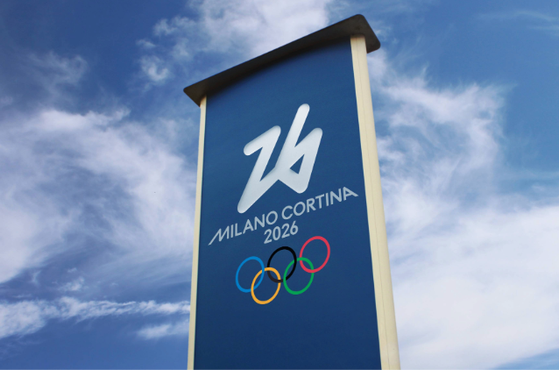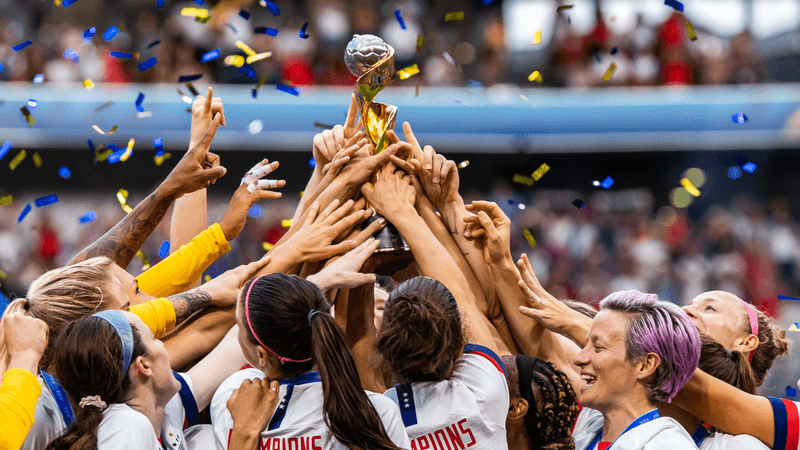Milano Cortina 2026 — key developments shaping the Winter Olympic & Paralympic Games

We explore how structural, environmental and organisational shifts are shaping the 2026 Winter Olympic and Paralympic Games.
Read more
We make the difference. Talk to us: 0333 004 4488 | hello@brabners.com
AuthorsEleanor Green

130 female football stars have signed an open letter urging FIFA to reconsider its lucrative sponsorship deal with the Saudi Arabian oil giant Aramco for the 2027 Women’s World Cup.
The letter — whose signatories include Netherlands forward Vivianne Miedema and former US national team captain Becky Sauerbrunn — calls on FIFA to not only replace Aramco “with alternative sponsors whose values align with gender equality, human rights and the safe future for our planet” but also create a committee that gives players a voice on the ethical impact of future sponsorship deals.
Here, Eleanor Green recaps the relationship between FIFA and Saudi Arabia and explores the growing resistance that football’s governing body is facing from its stars.
In October 2023, the 2034 World Cup bidding was unexpectedly opened in a fast-track process that was seemingly designed to assist Saudi Arabia’s victory, with only Asia and Oceania being permitted to compete.
FIFA facilitated this by brokering a three-continent deal for the 2030 World Cup, which will be played in Portugal, Morocco, Spain, Argentina, Paraguay and Uruguay — leaving Saudi Arabia as the only candidate for 2034. While both the 2030 and 2034 decisions are yet to be confirmed, it’s expected that contracts will be signed in December 2024.
In April 2024, FIFA exemplified its growing ties with Saudi Arabia after announcing a sponsorship deal with Aramco, commenting that “through the partnership, Aramco and FIFA intend to leverage the power of football to create impactful social initiatives around the world”.
While the value of the deal hasn’t been disclosed, it’s likely to be the most lucrative deal ever brokered by FIFA when considering average annual value — eclipsing all previous deals across both the men’s and women’s games by a significant margin.
Given Saudi Arabia’s historic mistreatment of women and the LGBTQ+ community, its laws on labour and male guardianship that limit women’s freedoms and the impact of Aramco’s oil and gas production on climate change, it’s perhaps unsurprising that this new alliance has been met with substantial resistance.
The signatories of the open letter to FIFA — who collectively hail from 26 countries — describe the deal as “a middle finger to women’s football” and “much worse than an own goal”. Their campaign has been supported by the organisation Athletes of the World, which brings together sportspeople to advocate on issues such as climate change and poverty.
Yet female footballers aren’t alone. Earlier this year, FIFA received an offer from a group of law and human rights experts to create an independent process for monitoring progress in Saudi Arabi, which it ignored. These same individuals — along with other Saudi activists — have recently urged FIFA to include the right to mandate ongoing reviews and a termination clause into the 2034 World Cup hosting contract.
In response to the resistance, FIFA has stated that it’s “an inclusive organisation with many commercial partners” and that the commercial revenue generated from this deal will be used (in part) to assist the development of women’s football.
FIFA has also agreed to set up committees for the women's game at all levels, including a women's players' committee. However, this is still a work in progress.
While FIFA has vehemently expressed its strong commitment to both championing human rights on an international level and combatting climate change, as Vivianne Miedema said, this sponsorship clearly undermines that rhetoric. It also conflicts with the values that female footballers typically stand for — inclusivity, empowerment and equality.
As we’ve seen over the past few years — for example, through the Canadian team’s attempted boycott of the SheBelieves cup in 2023 — women’s teams are unafraid to stand up for what they believe in. Moving forward, we’ll likely see more attention given to FIFA’s decision making, especially when it comes to the World Cup as the biggest stage for women’s football.
Despite this, it seems unlikely that FIFA is willing to listen or learn from the controversial selection process that saw Qatar host the 2022 World Cup. However, all will become clear in December.
Our sports team is recognised both nationally and internationally as one of the largest and most experienced multidisciplinary legal teams in the sports industry. We serve an exceptional client base that includes elite sports clubs, national governing bodies, international federations and large sports agencies both throughout the UK and around the world, as well as high-profile individuals.
Talk to us by giving us a call, sending us an email or completing our contact form below.

Loading form...

We explore how structural, environmental and organisational shifts are shaping the 2026 Winter Olympic and Paralympic Games.
Read more

We examine the consequences of Palou’s defection and the wider lessons for businesses negotiating contracts with athletes or other high‑value individuals.
Read more

We explore how World Rugby’s newest reforms are reshaping the sport and what they mean for clubs and governing bodies ahead of the 2026 Six Nations.
Read more